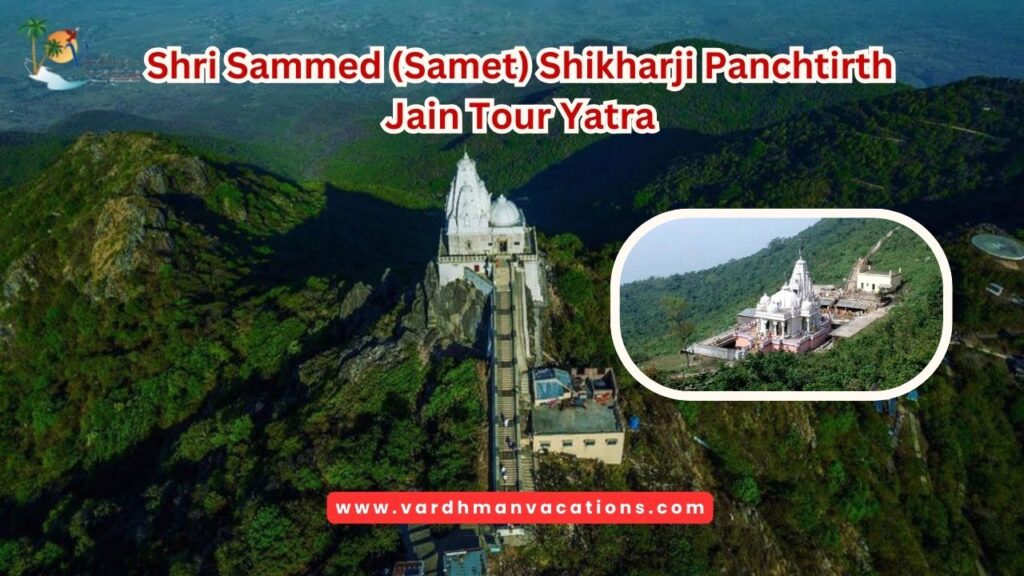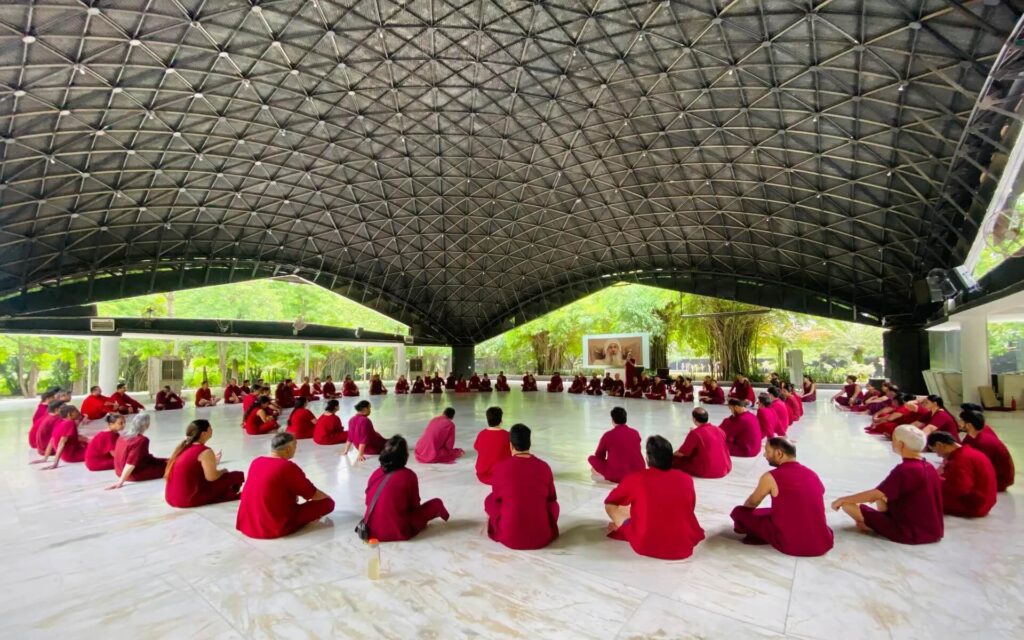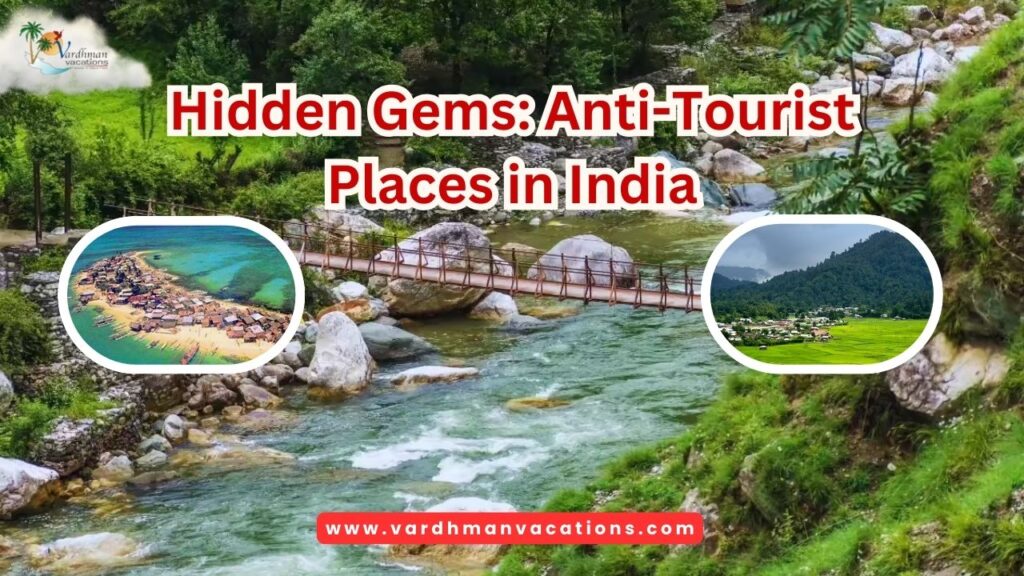India has always been a popular destination for international travelers due to its rich cultural heritage, diverse landscapes, and historical wonders. Every year, millions of foreign tourists are drawn to the country’s ancient temples, modern cities, and unique experiences. One of the most popular attractions for foreign tourists is the Golden Triangle Tour, which covers Delhi, Agra, and Jaipur. This tour is customizable to fit visitors’ preferences.
Most Visited Destinations in India by Foreign Tourists
Here’s a detailed guide to some of the most visited destinations in India by foreign tourists:
Taj Mahal, Agra
- Best Time to Visit: October to March
- Key Attractions: Agra Fort, Mehtab Bagh, Itimad-ud-Daulah’s Tomb
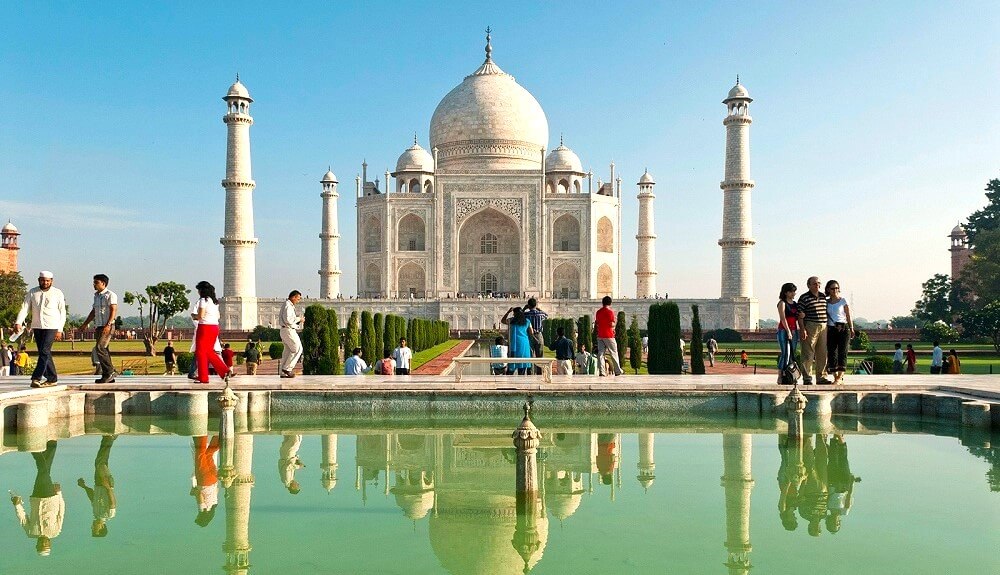
No list of India’s most visited places is complete without mentioning the Taj Mahal. This UNESCO World Heritage site is an epitome of love, built by Mughal Emperor Shah Jahan in memory of his wife, Mumtaz Mahal. The breathtaking white marble mausoleum attracts millions of tourists annually, who come to witness its mesmerizing beauty, especially at sunrise and sunset. The intricate carvings, symmetrical gardens, and reflecting pools add to the grandeur of this 17th-century masterpiece.
Jaipur, Rajasthan
- Best Time to Visit: October to March
- Key Attractions: Jantar Mantar, Nahargarh Fort, Jaipur Bazaars
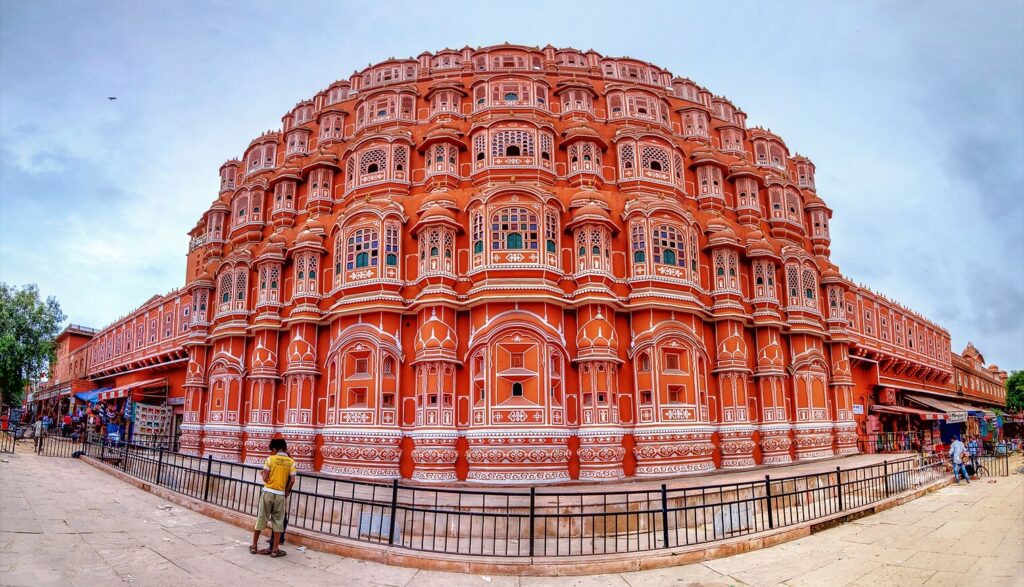
The Pink City of Jaipur, part of India’s famous Golden Triangle (Delhi-Agra-Jaipur), is a vibrant blend of historical forts, palaces, and lively bazaars. Amber Fort, City Palace, and the Hawa Mahal (Palace of Winds) are some of the most iconic structures here. Foreign tourists are enchanted by the regal charm, architecture, and the rich cultural festivals like the Jaipur Literature Festival.
Goa
- Best Time to Visit: November to February
- Key Attractions: Dudhsagar Waterfalls, Basilica of Bom Jesus, Chapora Fort
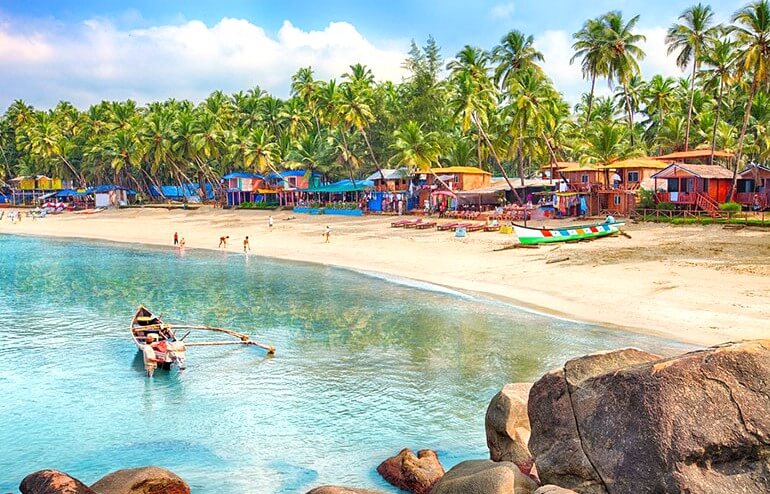
Known for its stunning beaches, vibrant nightlife, and colonial-era Portuguese architecture, Goa is a favorite destination for foreign tourists seeking both relaxation and adventure. From serene beaches like Palolem to the lively shacks at Baga and Calangute, Goa caters to a wide range of tastes. Water sports, yoga retreats, and its famous carnival further enhance its appeal.
Varanasi, Uttar Pradesh
- Best Time to Visit: October to March
- Key Attractions: Sarnath, Manikarnika Ghat, Ramnagar Fort
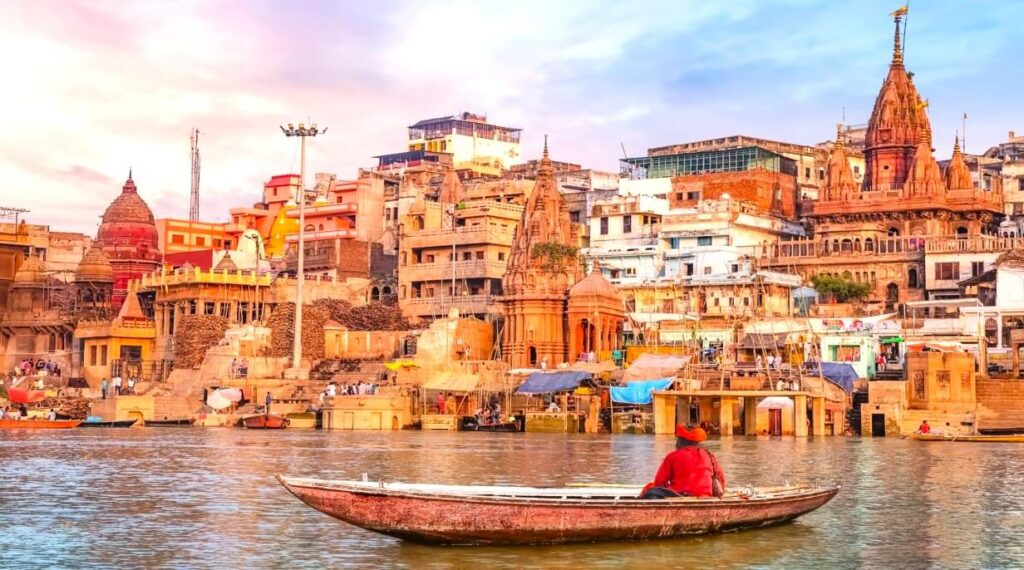
Varanasi, one of the world’s oldest living cities, is often referred to as the spiritual capital of India. Located on the banks of the River Ganges, this city draws foreign tourists eager to witness India’s deep religious traditions. From the Ganga Aarti ceremonies at the ghats to the ancient Kashi Vishwanath Temple, Varanasi offers a profoundly spiritual experience. Many visitors also come for yoga and meditation retreats.
Kerala Backwaters
- Best Time to Visit: November to February
- Key Attractions: Munnar, Periyar Wildlife Sanctuary, Varkala Beach
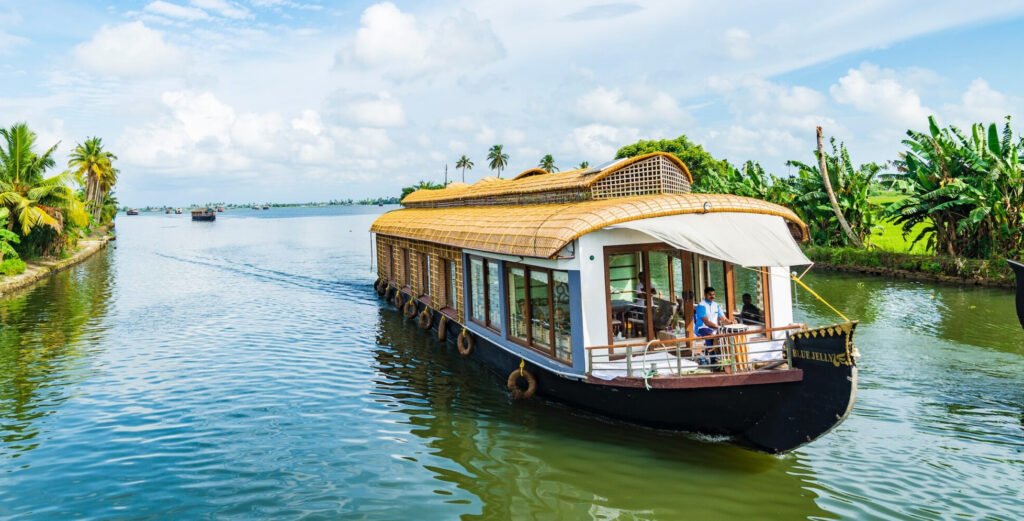
Kerala, often called “God’s Own Country,” is famous for its serene backwaters, lush landscapes, and Ayurvedic treatments. Foreign tourists particularly enjoy houseboat cruises in the backwaters of Alleppey and Kumarakom, where they can relax while drifting through scenic canals and lakes. Kerala’s unique culture, Kathakali performances, and its wildlife sanctuaries add to the allure.
Delhi
- Best Time to Visit: October to March
- Key Attractions: India Gate, Lotus Temple, Akshardham Temple, Raj Ghat
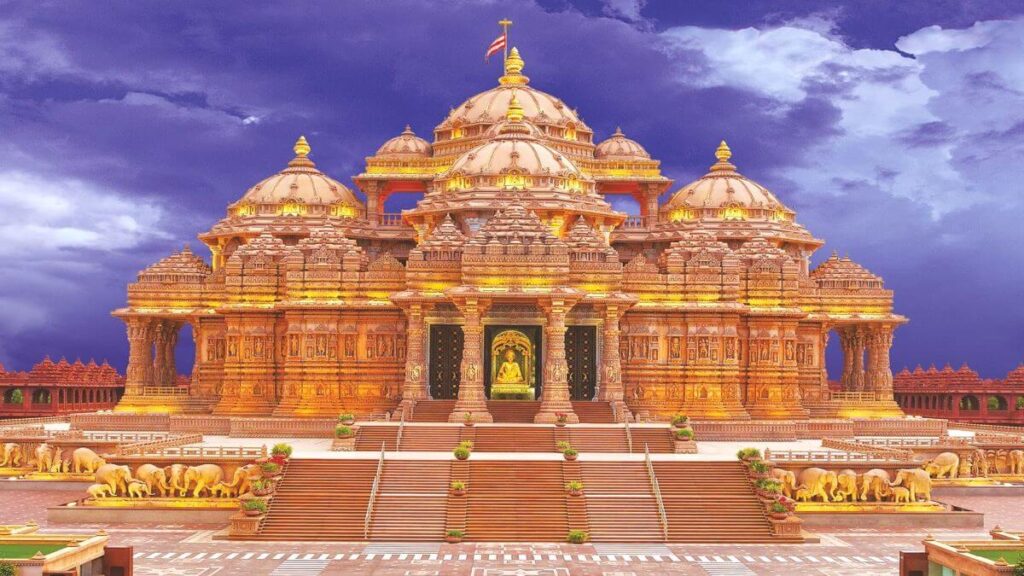
India’s capital, Delhi, is a city that offers a fascinating mix of ancient history and modern attractions. The historic Red Fort, Qutub Minar, and Humayun’s Tomb offer glimpses into the country’s Mughal past, while the bustling markets of Chandni Chowk provide a sensory overload. Delhi’s vibrant street food, art galleries, and museums make it an essential stop for foreign tourists.
Mumbai, Maharashtra
- Best Time to Visit: November to February
- Key Attractions: Colaba Causeway, Juhu Beach, Siddhivinayak Temple
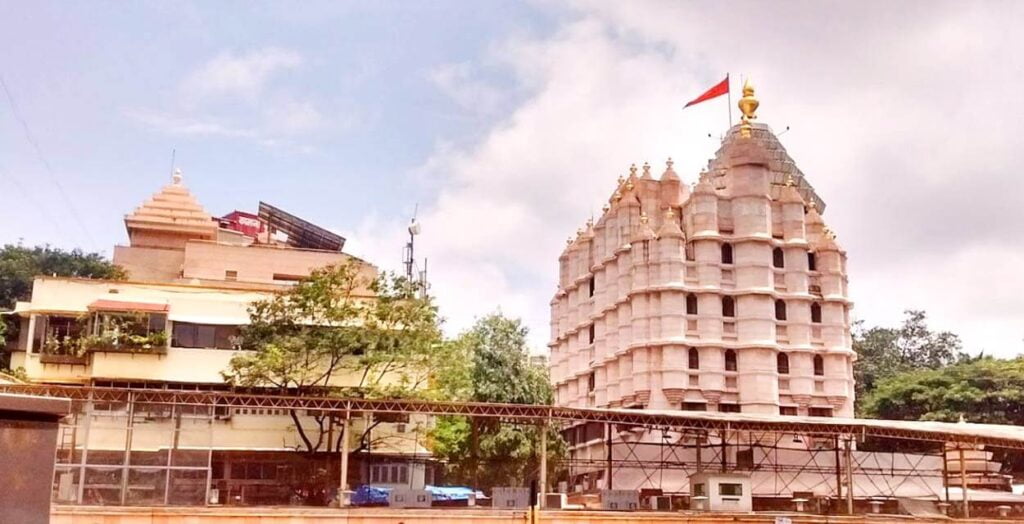
As India’s financial capital and home to Bollywood, Mumbai offers a unique blend of glamour and tradition. Tourists flock to the iconic Gateway of India, take a walk along Marine Drive, and explore the historic Chhatrapati Shivaji Maharaj Terminus. Mumbai’s diverse culinary scene, bustling nightlife, and the nearby Elephanta Caves make it a vibrant destination.
Rishikesh and Haridwar, Uttarakhand
- Best Time to Visit: February to May, September to November
- Key Attractions: Triveni Ghat, Lakshman Jhula, Beatles Ashram, Neelkanth Mahadev Temple
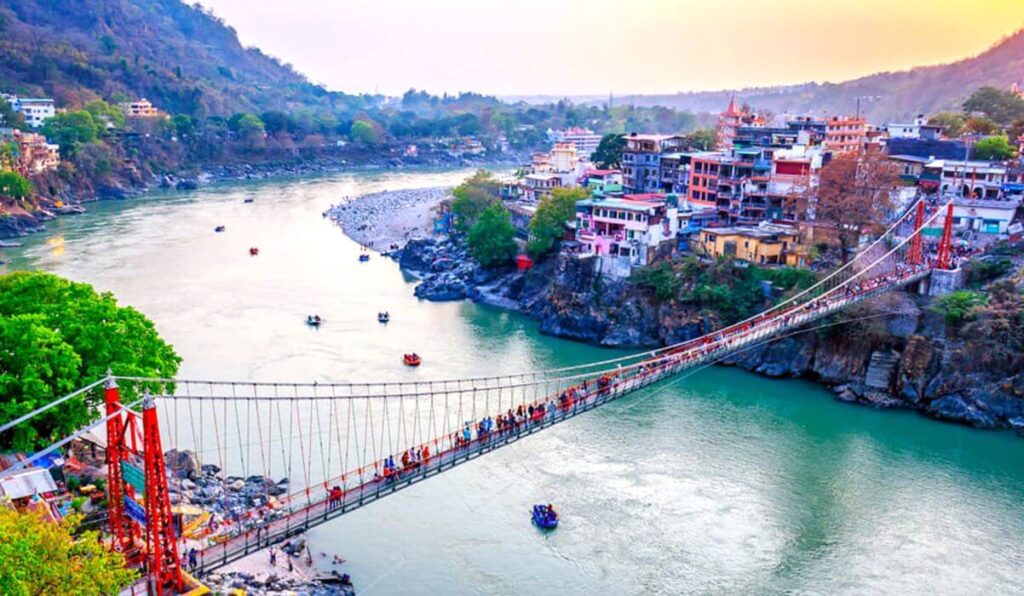
Known as the Yoga Capital of the World, Rishikesh attracts thousands of foreign tourists seeking spiritual solace, yoga training, and adventure sports like white-water rafting. Just a short drive away is Haridwar, where tourists can witness the spiritual Ganga Aarti and explore the temples and ashrams along the banks of the Ganges.
Leh-Ladakh, Jammu & Kashmir
- Best Time to Visit: May to September
- Key Attractions: Shanti Stupa, Thiksey Monastery, Khardung La Pass
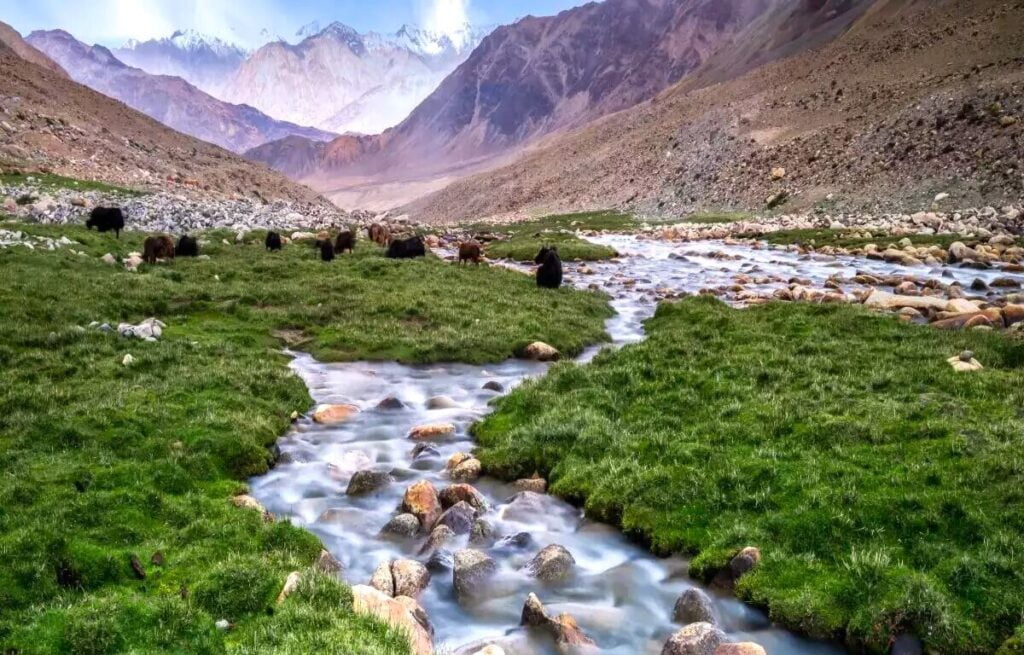
For foreign tourists looking for adventure and breathtaking landscapes, Leh-Ladakh is the ultimate destination. Nestled in the high Himalayas, this region offers awe-inspiring views of snow-clad mountains, pristine lakes, and ancient Buddhist monasteries. The Pangong Lake and Nubra Valley are must-see spots, while trekking and biking routes attract thrill-seekers from around the globe.
Hampi, Karnataka
- Best Time to Visit: October to March
- Key Attractions: Virupaksha Temple, Vithala Temple, Matanga Hill
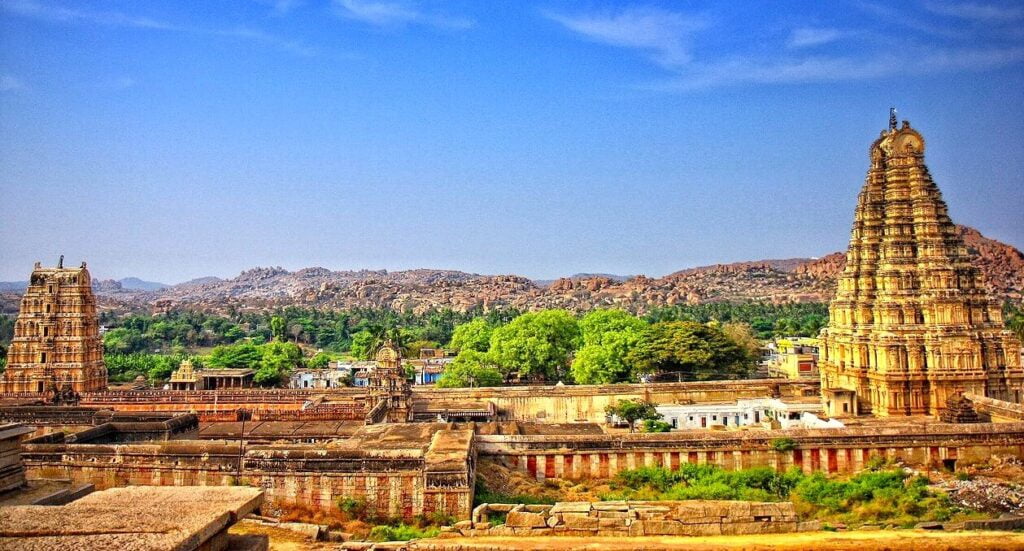
A UNESCO World Heritage site, Hampi is a surreal landscape of ancient ruins, temples, and palaces. This once grand capital of the Vijayanagara Empire now stands as a fascinating archaeological site that draws history buffs and architecture enthusiasts from all over the world. The intricate stone carvings, massive boulders, and peaceful surroundings make Hampi a must-visit for cultural explorers.
India’s unique blend of ancient culture, natural beauty, and modern amenities makes it one of the most fascinating destinations in the world for foreign tourists. By visiting these popular spots, you can experience the diversity, spirituality, and hospitality that define the country.
Pro Tips for Foreign Tourists
- Visa Requirements: Ensure you apply for an Indian e-Visa in advance.
- Cultural Etiquette: Familiarize yourself with local customs and dress modestly, especially at religious sites.
- Local Transportation: Consider hiring a local guide for ease in navigating some of the more crowded or complex areas.
Conclusion
India’s tourism appeal is rooted in its extraordinary diversity, offering something for every kind of traveler. From the architectural wonders of the Mughal Empire to the pristine beaches of Goa and Kerala’s tranquil backwaters, these are just a few of the destinations that leave foreign tourists enchanted. Whether you’re seeking adventure, spirituality, history, or culture, India is a country that promises a once-in-a-lifetime experience.
FAQs: Most Visited Destinations in India
The best time to visit India varies by region:
Northern India (e.g., Rajasthan, Delhi, Agra): October to March, when the weather is cool and pleasant.
Southern India (e.g., Kerala, Goa): November to February, for mild weather and minimal rain.
Himalayan regions (e.g., Ladakh, Himachal Pradesh): May to September, when the snow has melted and roads are accessible.
Light, breathable clothing for hot climates
Warm layers if visiting northern India during winter or mountainous regions
Sunscreen, sunglasses, and hats to protect from the sun
Sturdy footwear for walking and exploring historical sites
Insect repellent, especially if visiting forests or coastal regions
Reusable water bottles
Yes, foreign tourists need a visa to enter India. Most travelers can apply for an e-Visa online, which allows entry for tourism, business, or medical reasons. Make sure to apply well in advance and check the requirements specific to your country.
The Golden Triangle refers to a popular tourist route connecting three major cities in India: Delhi, Agra (home of the Taj Mahal), and Jaipur. This route showcases India’s rich historical, cultural, and architectural heritage, making it a favorite for first-time visitors.
India is generally safe for foreign tourists, but it’s important to take common travel precautions:
Avoid isolated areas, especially at night.
Use reputable transportation options, such as registered taxis or ride-hailing apps.
Keep an eye on your belongings in crowded places.
Stay hydrated and only drink bottled water to avoid waterborne illnesses.
Taking a houseboat cruise on Kerala’s backwaters
Witnessing the sunrise or sunset at the Taj Mahal
Attending the Ganga Aarti in Varanasi
Exploring Rajasthan’s palaces and forts
Experiencing India’s colorful festivals like Holi and Diwali
Practicing yoga in Rishikesh, the Yoga Capital of the World
Yes, tipping is customary in India, but the amount varies:
Restaurants: A tip of 5-10% is generally appreciated if the service charge is not already included.
Tour guides: Tipping around INR 200-500 (depending on the quality of service) is common.
Drivers and hotel staff: Small tips of INR 100-200 are generally appreciated.



